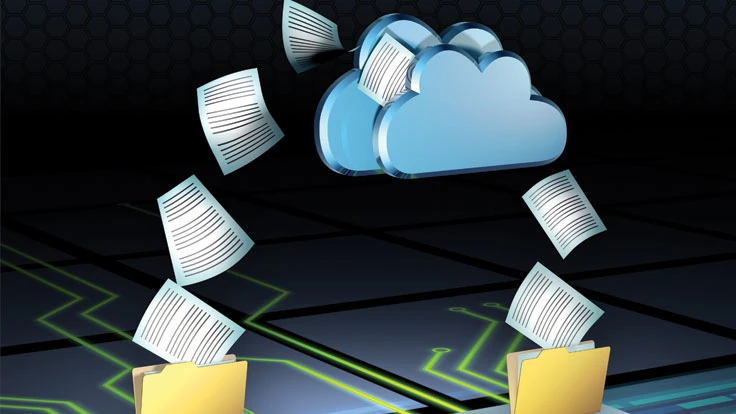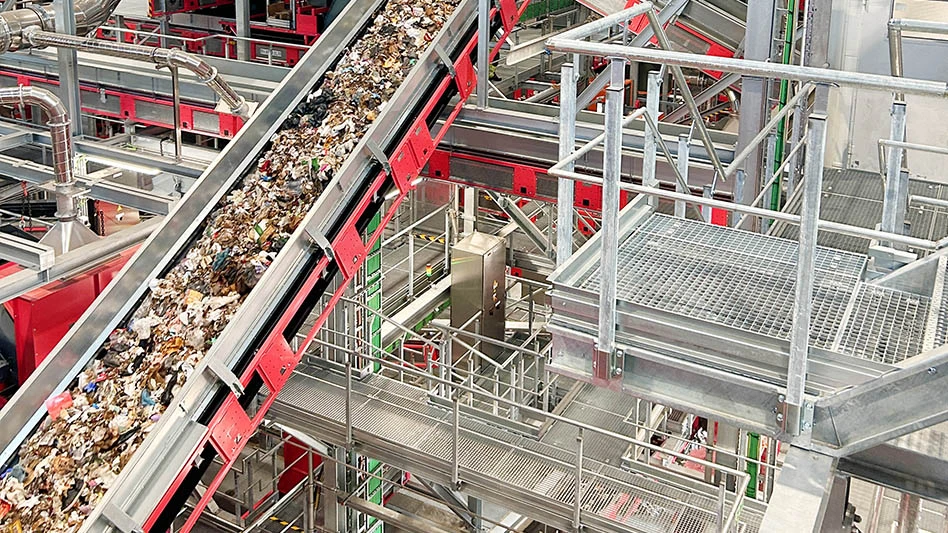
A key term heard throughout WasteExpo, which took place from May 8-11, 2017, at the Ernest N. Morial Convention Center in New Orleans, was “big data.” Big data, according to several session speakers throughout the show, can be used to increase efficiencies in different industry sectors.
In the session Big Data & Smart Waste, which took place May 8, speakers Amity Lumper, Don Ross, Jason Gates and Scott Lukach discussed how data collection is affecting customer service and outreach and route optimization and how to pin down the most relevant sets of data.
According to Don Ross, director of operations at Kessler Consulting Inc., Tampa, Florida, while data gathering for the waste industry is important, big data goes from a terabyte to many petabytes in size—an amount the waste industry may not need or even have.
Because the public sector, private sector and haulers communicate with similar or the same customers throughout their areas, the data sets needed to create a more efficient business can be smaller. Rather than gathering every piece of data from a customer, he said, “you need to figure out what is essential and valuable to your operations.”
Data can be used for service verification, fleet and telematics, route optimization, bin volume, behavior tracking and in “smart cities,” or urban areas that use data, information and communication technology and the internet of things to manage its assets. The data come from different technologies made for different purposes, such as cameras, radio frequency identification tools (RFID) and in-cab devices.
Customers receive feedback on waste and recycling rates and can receive a certain time when a truck will pick up their curbside containers, and the city knows where certain education efforts need to be targeted.
Jason Gates, co-founder of San Francisco-based Compology, used data to create a customer outreach tool that allows customers to order service or make an appointment for cart maintenance through their mobile devices. Optics-based sensors manufactured by Compology are designed to monitor location, fullness and movement of the container; use 24/7 cloud-based data hosting and GPS-enabled container tracking; and provide in-browser tools to manage assets, schedule container hauls, digitally dispatch drivers to their locations and track performance metrics.
According to Scott Lukach, vice president of environmental services at Rehrig Pacific Co. in Los Angeles, gathering data and using that information in certain applications, such as the aforementioned, is only the beginning for the waste industry. In general, data are changing the way the world lives—from how objects are purchased to how people communicate.
“Behaviors are changing,” he said during the session. “And we need to change with it as an industry.”
Cloud computing is pushing the “clunky” technology of old off to the wayside and providing more space to hold more information but take up less room. Scanners used by haulers didn’t communicate well and were unreliable. With RFID tagging on containers, machine-to-machine communication allows for a more reliable set of data, he said.
This, Lukach said, lets waste companies create marketing campaigns with more focus, such as Lumper’s targeted education efforts, and a closer relationship with its customers through mobile apps.
To hear more on the session Big Data & Smart Waste from WasteExpo, watch the first episode of our Video Show Daily at www.wastetodaymagazine.com/video/waste-expo-2017-video-show-daily-day1.
Latest from Waste Today
- US Senate backs reduced cuts to EPA
- ELV Select Equipment, Reworld aid NYPD in secure firearm disposal
- Waste Connections announces Q2 results
- Returnity and Cosmoprof to address reusable bag waste
- SWANA releases report on aging WTE facilities
- New economic assessment reveals cost benefits of California’s SB 54
- Premier Truck Sales & Rental opens new facility
- TeknTrash Robotics, Sharp Group partner on humanoid robot pilot





